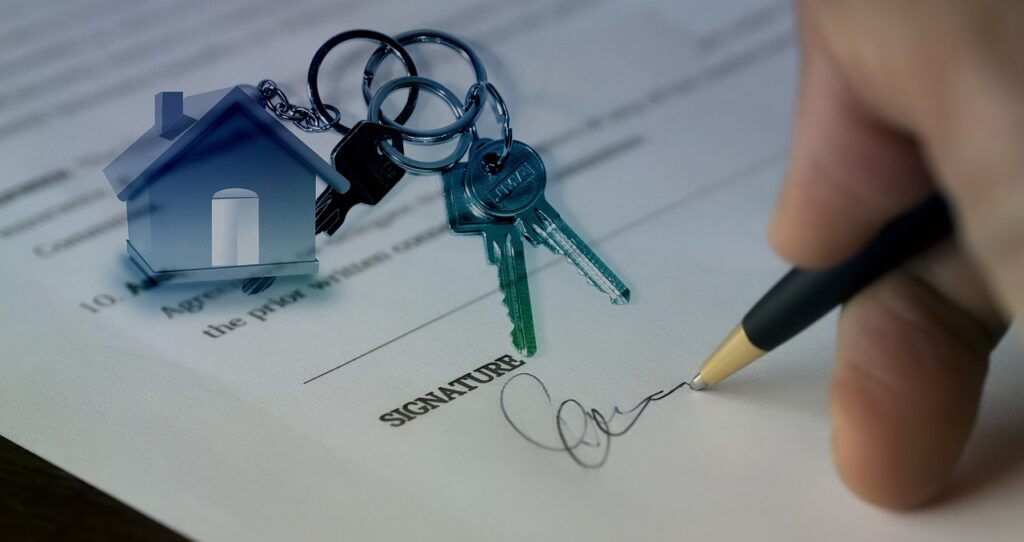
Purchasing a brand-new condo is an exciting experience. Purchasers of a new condo build have the unique opportunity to personalize their home, and after building is complete, will move into a home that has never been lived in. But what happens if the housing market declines from the time of purchase to the time of closing, or if the builder doesn’t complete all elements of the build prior to closing? It is important for a purchaser to understand their rights and obligations in both scenarios, and to exercise these rights and obligations in good faith.
The Condominium Act is consumer protection legislation which aims to protect condo purchasers. Section 73 of the Condominium Act allows a purchaser to rescind an agreement of purchase and sale where there is a material change presented in the disclosure statement provided by the condominium authority, so long as the recission is done before accepting a deed to the unit being purchased. A material change is something that would be sufficiently important to a purchaser in deciding to purchase a condo unit, and exemptions are provided in the Condominium Act.
In Chen v Brookfield Residential (Ontario) Limited, the purchaser of a new condo wanted to rescind their agreement of purchase and sale due to a material change. The purchaser reasoned that the failure to complete the parkette and the entry and exit gates before closing was a material change to the agreement. However, there was an earlier reason that the purchaser sought to terminate the agreement, which was unrelated to material change.
Between when the agreement of purchase and sale was entered into in January 2017 and when the closing date was set for December 2017, the housing market took a downturn. In December 2017, the purchaser notified the seller that they would not be able to close due to the low appraisal value of the condo unit being purchased and requested that the agreement be terminated or closing date extended. In response, the seller offered the purchaser an extension. Instead of agreeing to an extension, the buyer sent the seller their notice of recission, noting incomplete amenities as the reason for recission of the agreement.
The sale did not close and the purchaser brought a claim against the seller seeking a return of his deposit and damages. The seller brought a counterclaim for the purchaser’s breach of the agreement.
The Ontario Court of Appeal upheld the judgement of the lower court, which dismissed the case because the recission of the purchaser was invalid. The failure to complete the parkette and gates did not amount to a material change within the meaning given in the Condominium Act. Additionally, the Court found that the purchaser did not intend to complete the contract, regardless of the failure to complete the parkette and gates. The Court found that the true intention of the purchaser was not to close because of the low appraisal value. The purchaser lost his deposit for breaching the agreement of purchase and sale and was ordered to pay the costs of the seller.
In their decision, the Court relied heavily on the principle of good faith and spoke of good faith as an element of recission. When the purchaser used recission as a strategy to avoid closing the agreement, the purchaser did not provide the notice of recission in good faith. The Court called this “a strategy to evade the agreement.” Recission remains available to purchasers who have experienced a valid material change to the agreement of purchase and sale as a way of protecting purchasers as consumers.
The Court has made it clear that recission is not to be used by purchasers as a strategic mechanism for side-stepping a valid agreement. But in keeping in line with the legislative protection of consumers, the Court also addressed the concern that recognizing a good faith requirement would enable sellers to ignore notices of recission from purchasers who have valid claims of material change. The Court cautions sellers who ignore a notice of recission, and notes that sellers who do this would run the risk of incurring liability for resulting damages suffered by a purchaser for ignoring a notice of recission.
Leave to appeal was filed with the Supreme Court of Canada in December 2022 but was dismissed on July 27, 2023.
For further information about purchasing a condo, obligations of the purchaser or builder of a new condo unit, or where rescission is possible because a material change has occurred, please reach out to Daniel & Partners LLP. Our team would be happy to assist you with your real estate transaction with your best interests in mind.
Blog post written by Summer Student, Robyn Mollinga.
Citation: Chen v Brookfield 2022 ONCA 887






